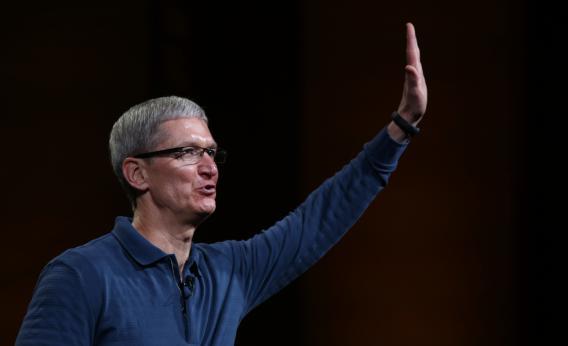Almost from the moment that Steve Jobs died, Apple’s product line has been subjected to heightened scrutiny from the media, investors, and the public. Increasingly the company has been pelted with complaints that it no longer truly innovates—that it now settles for “playing defense” and updating its existing products rather than “inventing new product categories.” Back in January, The Atlantic’s Derek Thompson put it this way:
The Apple of the last decade was a non-stop invention factory, truly an extraordinary company. The Apple in front of the curtain today looks more like an extraordinarily rich, ordinary company.
That has become the conventional wisdom in the past year or so, and it has helped to cut the company’s stock price nearly in half. But it has always struck me as a bogus argument. Apple launched three legitimately pioneering products in the last 10 years of Jobs’ life: the iPod in 2001, the iPhone in 2007, and the iPad in 2010. That’s one “new product category” every three to six years. So the earliest anyone should have been expecting the next one was right about now.
For that to happen, work likely would have had to start on it while Jobs was still at the helm. CEOs don’t just will products into life in an instant. They often bubble up from the ranks, and even once they get the green light, they take time to develop, refine, and build. Even if Tim Cook had decreed on his very first day that everyone in the company immediately begin work on some innovative new product, there’s a good chance it wouldn’t be ready for market yet.
On Tuesday, clearly sensitive to all of the criticism—not to mention the company’s plummeting stock price—Cook felt compelled to assure everyone that Apple has not given up on innovation. Discussing the company’s future, he touted not only “the long-term prospects of the smartphone and tablet market,” but “the potential of exciting new product categories.” (Note that this wording—“new product categories”—is exactly the wording that Marc Andreessen used a few months ago to explain what set Jobs apart from Cook.) Cook added that the company is hard at work on new hardware, software, and services that it “can’t wait to introduce this fall and throughout 2014.”
That’s good news for Apple fans, and should put to rest the strange notion that a company with 50,000 employees in the United States alone has given up on inventing things simply because it has a new CEO. But as my colleague Farhad Manjoo points out, it does reveal one thing that has changed in Cupertino in the past two years. In the past, Apple didn’t have to promise exciting new things. It just delivered them. Perhaps that had something to do with Jobs’ personality and philosophy. But it had at least as much to do with his myth—the aura of near-infallibility that the company acquired during his reign. That died with him, even as the company’s innovative spirit lives on.
